This is number six, the final ‘issue’ regarding autistic womens health rights in my series of the main issues!
Topics like sexual, menstrual, and reproductive health often aren’t talked about..I feel like they’re very taboo, still, and this means that frequently the lack of equality in these systems gets overlooked. We assume the systems in place serve everyone equally, but this isn’t the case; autistic women face unique challenges when it comes to their experiences of pregnancy, relationships, puberty, menstruation, and sexual development, but rarely have access to appropriate education to support them. This leaves us vulnerable, unaware, and without the knowledge and tools we need to either manage our own health or seek help when necessary.
What does sexual/reproductive/menstrual health relate to?
According to the World Health Organization (WHO), sexual health is not just about avoiding illness or preventing pregnancy. It’s a state of complete physical, emotional, mental, and social well-being in relation to sexuality. This includes the right to make decisions about one’s body, relationships, and reproductive future—free from discrimination, coercion, or violence. Menstrual health, similarly, encompasses more than hygiene—it’s about dignity, participation, and the ability to live life fully at all stages of the menstrual cycle. And reproductive health is also about being fully informed and safe, as well as physically well, when it comes to going through pregnancy and having a child.
All these principles are universal, but the systems designed to support these rights fail to recognise the specific needs of autistic individuals, especially women and girls.
Briefly, what are some of the main issues?
Menstrual health – autistic women often experience added layers of difficulty when it comes to managing menstruation: unpredictable sensory reactions to menstrual products, challenges in self-care routines, difficulty interpreting pain or emotional changes, and a lack of understanding or communication about what’s happening to their bodies. Research highlights that menstruation can also amplify autism-related difficulties—intensifying emotional dysregulation, increasing sensory discomfort, and complicating daily functioning.
Reproductive health – accessing reproductive health services can be problematic, from inaccessible communication with healthcare providers to outright discrimination. Autistic individuals may not receive the information they need to make informed choices about contraception, STI prevention, or pregnancy, and the risk of being infantilised or not believed by medical professionals has been shown to be disturbingly high.
Moreover, conversations around gender and sexual diversity—already lacking in many mainstream health curriculums—are almost completely absent from education for autistic individuals. This further marginalises LGBTQ+ autistic youth, who may struggle to find resources that reflect their identities or give them space to ask questions without judgment.
Sexual health – sexual health covers a very wide range of possible issues, from sexual violence and safe sex to sexual development and puberty – and all of these need specific education for autistic women. Puberty, for instance, is a complex time that can intensify sensory sensitivities and emotional regulation challenges. Many autistic individuals are wrongly viewed as asexual or incapable of romantic relationships, and the lack of education is not ‘protective’ but instead increases their vulnerability to sexual abuse and social isolation.
What needs to be done?
To move forward, we must create sexual, reproductive, and menstrual health education that:
- Recognises neurodiversity and respects the autonomy of autistic individuals
- Addresses the differences and nuances of relationships formed by autistic individuals and the impact of these on issues like consent and power
- Understands the extra sensory challenges in the experience of certain conditions, as well as in management (e.g. recognising bodily cues, need for different options in menstrual products)
- Teaches in concrete, explicit ways that support comprehension and comfort
- Acknowledges gender and sexual diversity without assuming heteronormativity or binary gender identities
- Has awareness of health conditions more commonly experienced by autistic individuals that also affect repoductive/sexual/menstrual health (e.g. PCOS, hypermobility, diabetes).
Sexual health education has been proven to increase autistic individuals confidence in relationships, in developing their sense of self, and in keeping themselves safe and well. It’s fundamental to a good quality of life. We need to empower autistic women, and that begins with inclusive, accessible, and respectful education around their bodies, relationships, and rights.
Research used:
https://www.ncbi.nlm.nih.gov/pmc/articles/PMC7728167/
https://publications.aap.org/pediatrics/article/149/Supplement%204/e2020049437J/185641/Improving-the-Sexual-and-Reproductive-Health-and?autologincheck=redirected
https://www.ncbi.nlm.nih.gov/pmc/articles/PMC6223765/
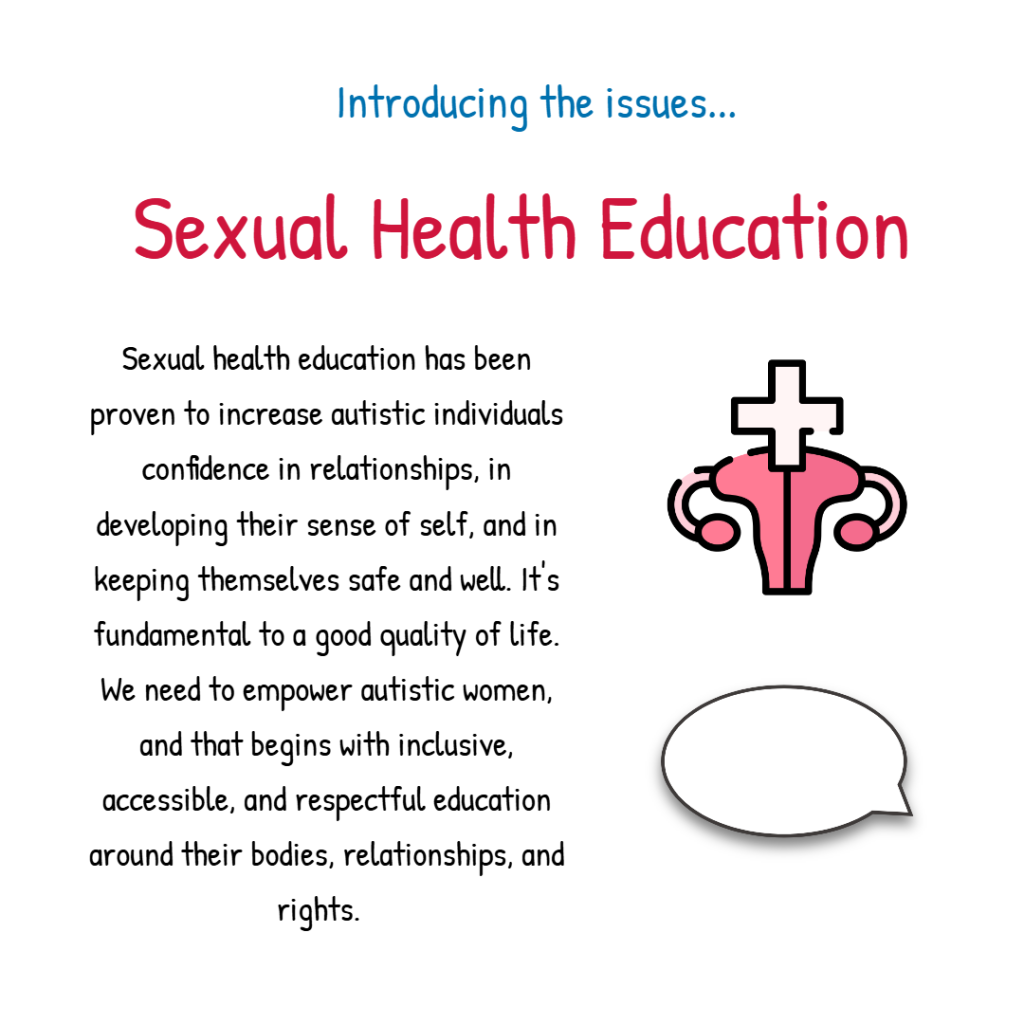
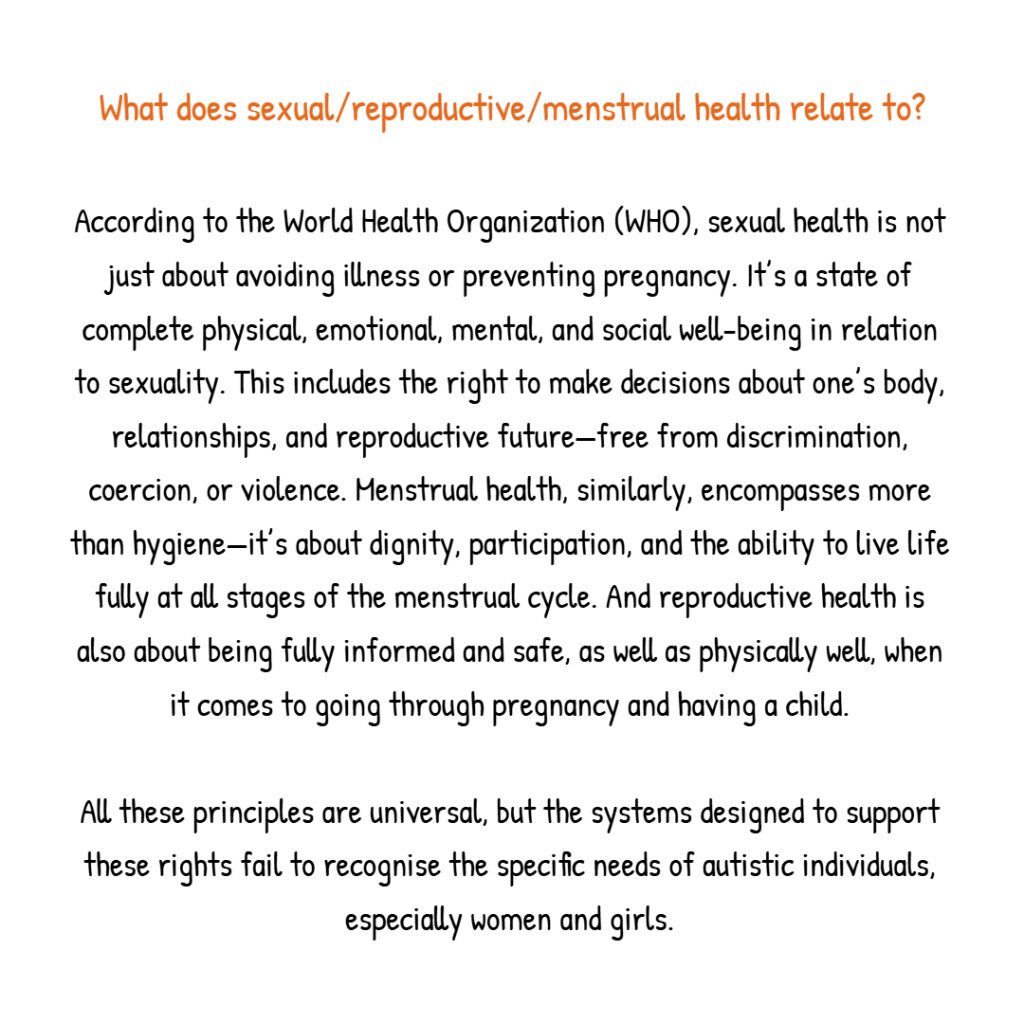
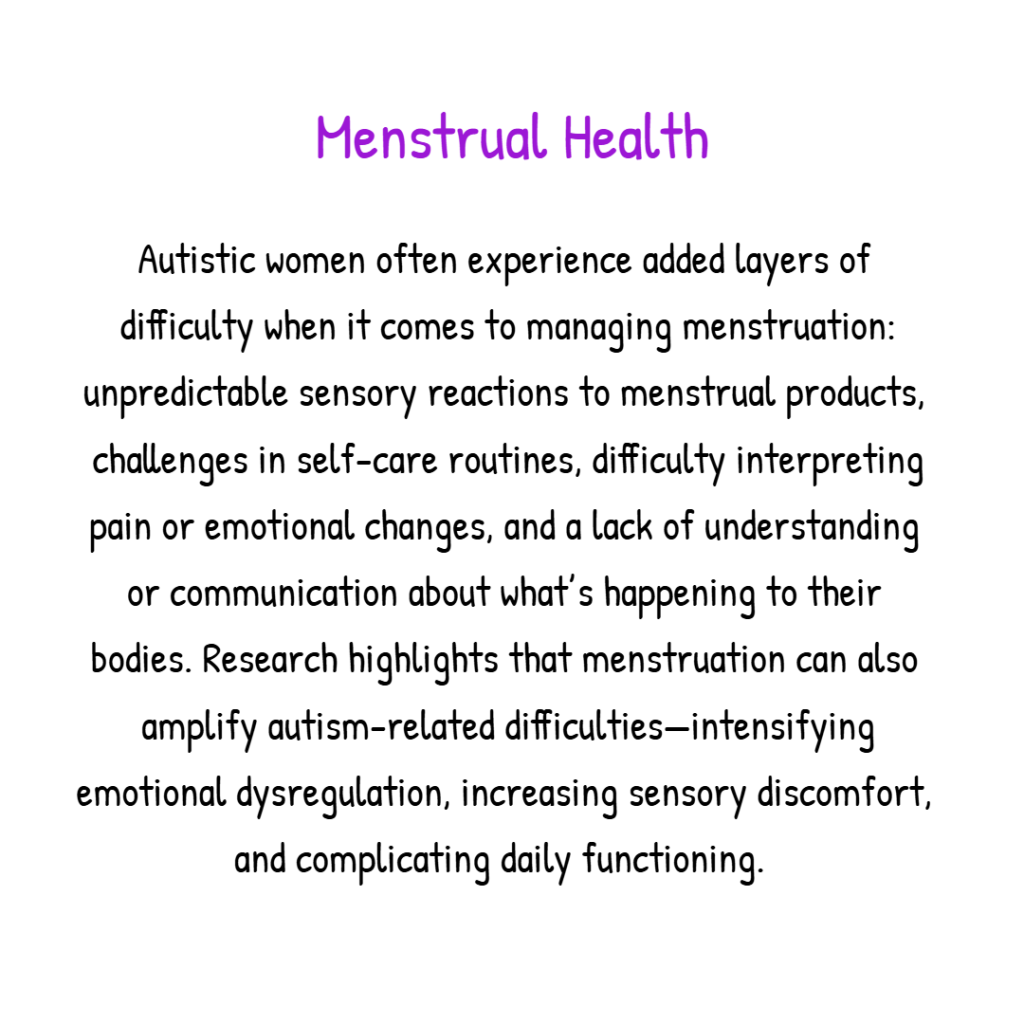
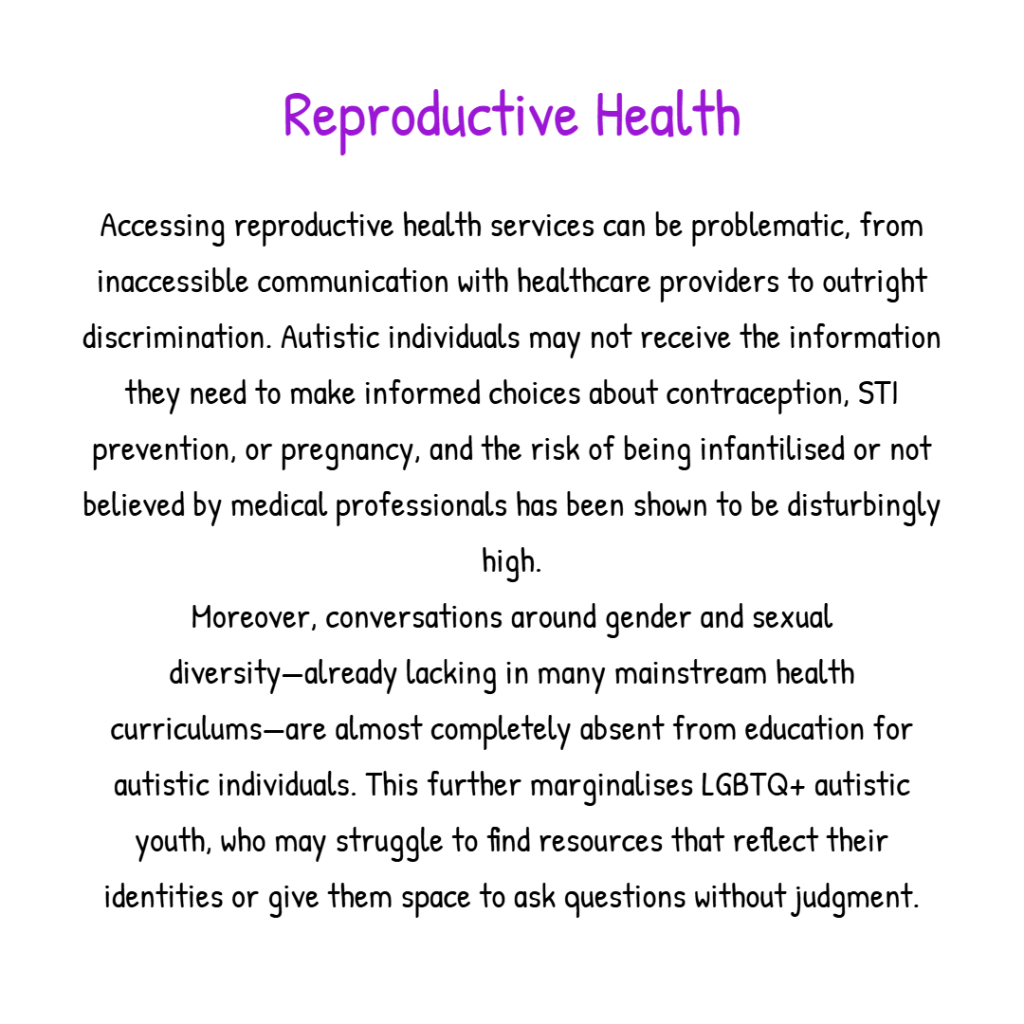
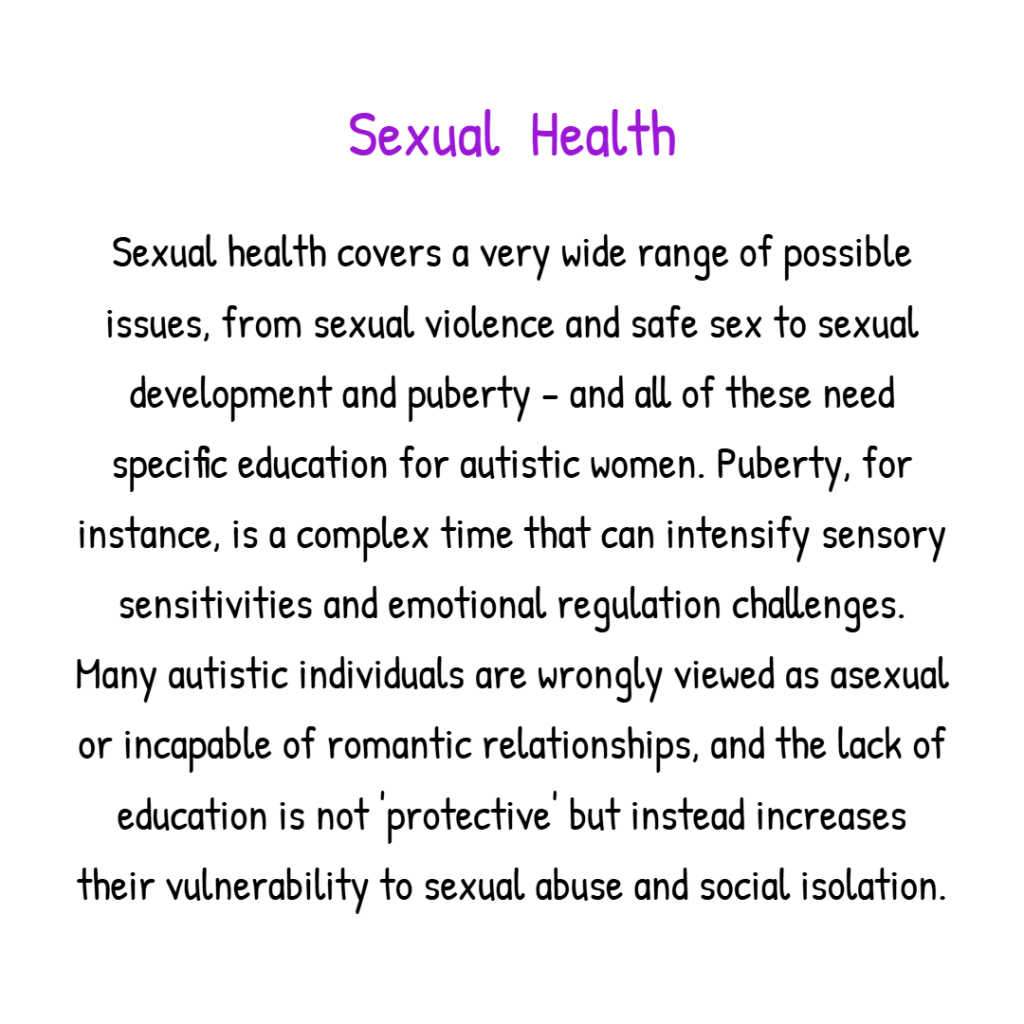
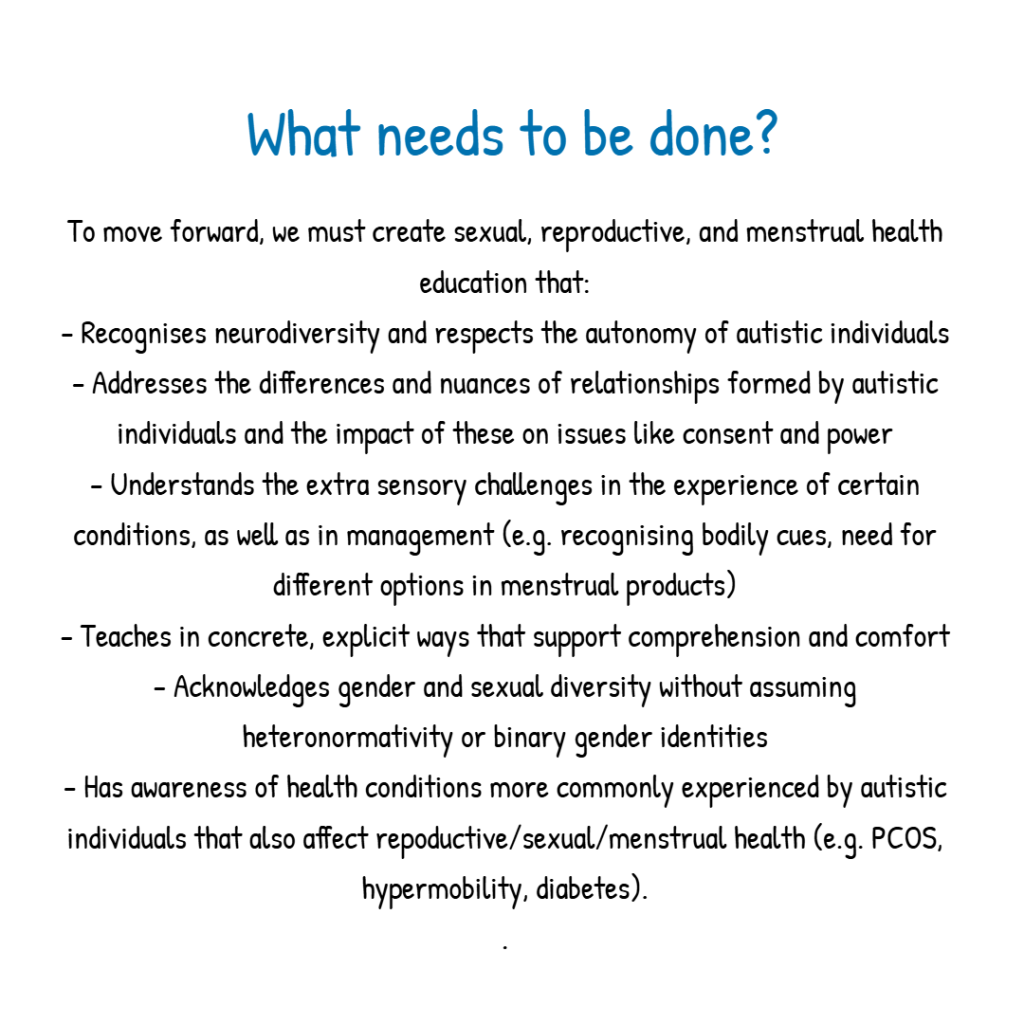
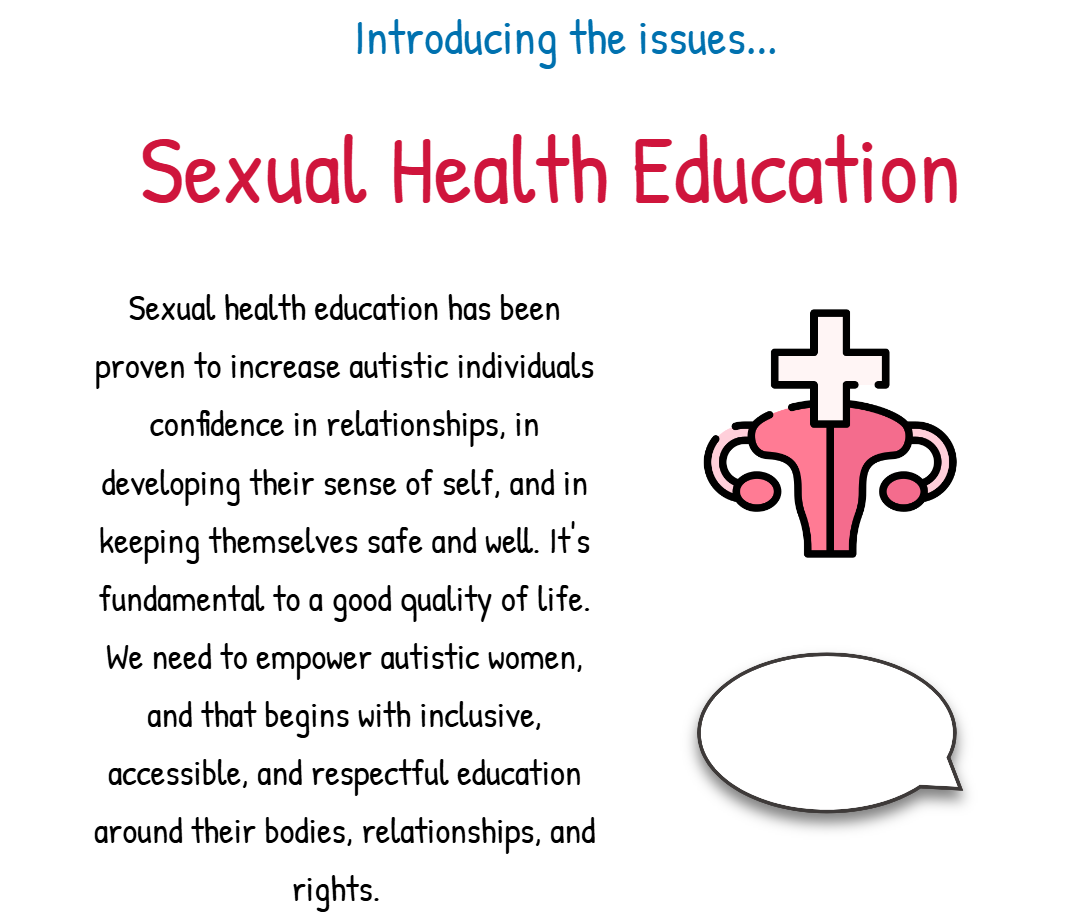
Leave a Reply